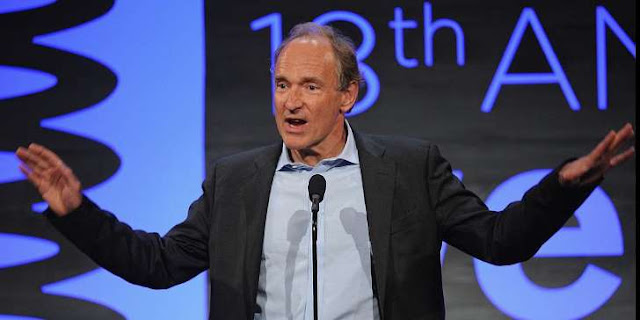The Internet Is In Danger, Says It's Founder, Here Are Ways To Fix It
Not many of us are familiar with the inventor of the Internet, Sir Tim Berners-Lee.
In the letter published by the World Wide Web foundation, Berners-Lee said:
It's 28 years since he submitted his original proposal for the World Wide Web and Berners-Lee has penned an open letter naming three issues that need to be addressed to ensure the survival of the internet.
In the letter published by the World Wide Web foundation, Berners-Lee said:
I imagined the web as an open platform that would allow everyone, everywhere to share information, access opportunities, and collaborate across geographic and cultural boundaries.
In many ways, the web has lived up to this vision, though it has been a recurring battle to keep it open.
But over the past 12 months, I’ve become increasingly worried about three new trends, which I believe we must tackle in order for the web to fulfil its true potential as a tool that serves all of humanity.
He then addresses three issues:
1. We need to take back control of our personal data
We are not aware of the fact that we have direct control over this data, and we chose to share it with. What's more, we often do not have any way of feeding back to companies what data we'd rather not share - especially with third parties - the T & Cs are all or nothing... In repressive regimes, it's easy to see the harm that can be caused - bloggers can be arrested or killed, and political opponents can be monitored.
But even in countries where we believe governments have citizens' best interests at heart, watching everyone, all the time is simply going too far.
It creates a chilling effect on free speech and stops the web from being used to explore important issues, like sensitive health issues, sexuality or religion.
2. We need to tackle fake news
Today, most people find news and information on the web through just a handful of social media sites and search engines.
These sites make more money when we click on the links they show us. And, they choose what to show us based on algorithms which they learn from our personal data that they are constantly harvesting. The net result is that these sites show us content they think we'll click on - meaning that misinformation, or 'fake news', which is surprising, shocking, or designed to appeal to our biases can spread like wildfire .
And through the use of data science and armies of bots, those with bad intentions can play the system to spread misinformation for financial or political gain.
3. Politicians need to be more open
Political advertising online has quickly become a sophisticated industry.
The fact that most people get their information from just a few platforms and the increasing sophistication of algorithms drawing upon rich pools of personal data, means that political campaigns are now building individual adverts targeted directly at users. One source suggests that in the 2016 US election, as many as 50,000 variations of adverts were being served every single day on Facebook, a near-impossible situation to monitor.
Targeted advertising allows a campaign to say completely different, possibly conflicting things to different groups. Is that democratic?
He plans to work on the issues in a five-year strategy with the World Web Foundation, which he launched in 2009.
Last year Freedom House found that Internet censorship was at it's highest for the sixth consecutive year and that two thirds of internet users live in countries where where criticism of the government, military, or ruling family are subject to censorship.
HT World Wide Web Foundation

Comments